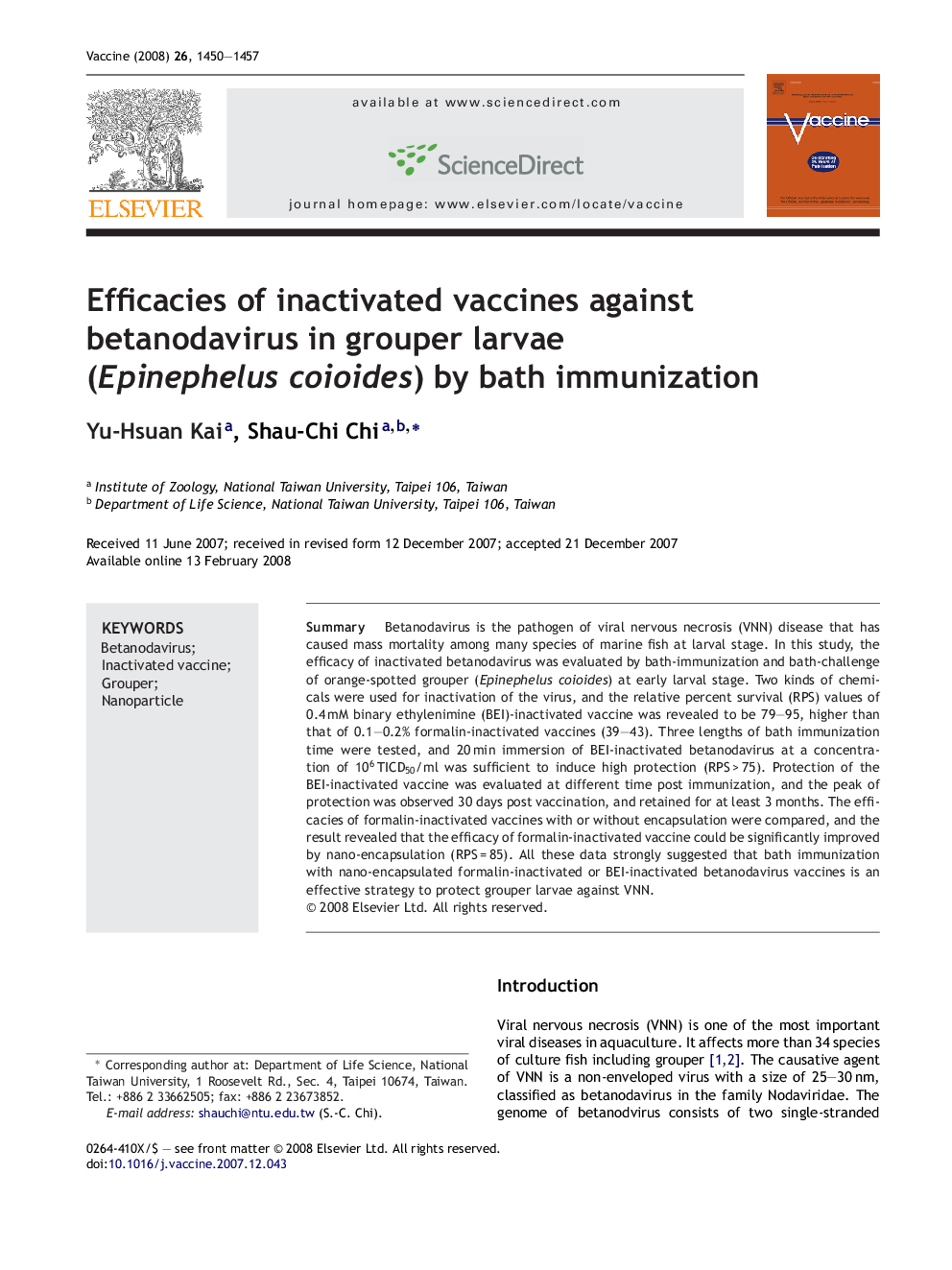| Article ID | Journal | Published Year | Pages | File Type |
|---|---|---|---|---|
| 2408363 | Vaccine | 2008 | 8 Pages |
SummaryBetanodavirus is the pathogen of viral nervous necrosis (VNN) disease that has caused mass mortality among many species of marine fish at larval stage. In this study, the efficacy of inactivated betanodavirus was evaluated by bath-immunization and bath-challenge of orange-spotted grouper (Epinephelus coioides) at early larval stage. Two kinds of chemicals were used for inactivation of the virus, and the relative percent survival (RPS) values of 0.4 mM binary ethylenimine (BEI)-inactivated vaccine was revealed to be 79–95, higher than that of 0.1–0.2% formalin-inactivated vaccines (39–43). Three lengths of bath immunization time were tested, and 20 min immersion of BEI-inactivated betanodavirus at a concentration of 106 TICD50/ml was sufficient to induce high protection (RPS > 75). Protection of the BEI-inactivated vaccine was evaluated at different time post immunization, and the peak of protection was observed 30 days post vaccination, and retained for at least 3 months. The efficacies of formalin-inactivated vaccines with or without encapsulation were compared, and the result revealed that the efficacy of formalin-inactivated vaccine could be significantly improved by nano-encapsulation (RPS = 85). All these data strongly suggested that bath immunization with nano-encapsulated formalin-inactivated or BEI-inactivated betanodavirus vaccines is an effective strategy to protect grouper larvae against VNN.
